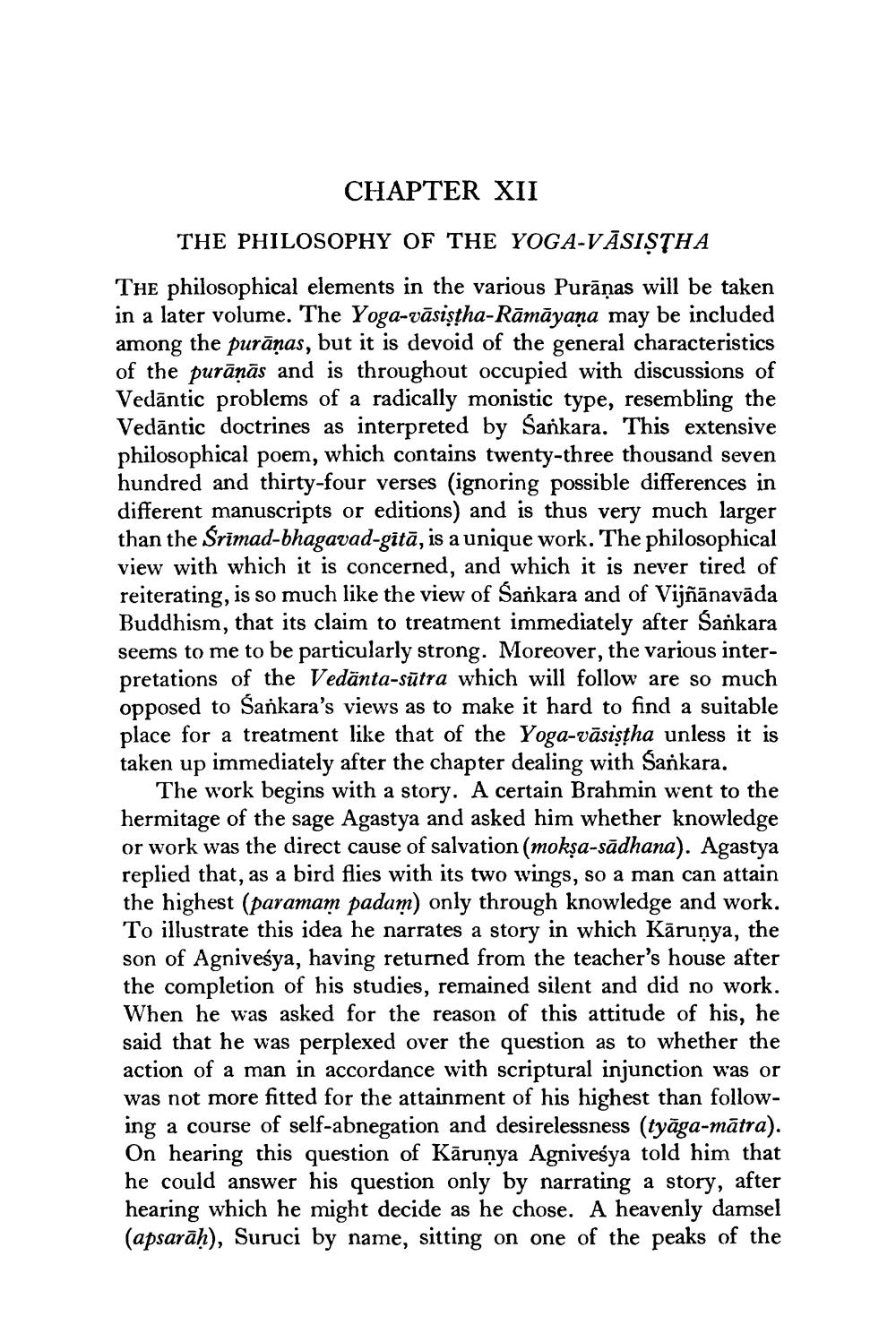________________
CHAPTER XII
THE PHILOSOPHY OF THE YOGA-VĀSISTHA THE philosophical elements in the various Purāņas will be taken in a later volume. The Yoga-vāsiştha-Rāmāyaṇa may be included among the purāņas, but it is devoid of the general characteristics of the purānās and is throughout occupied with discussions of Vedāntic problems of a radically monistic type, resembling the Vedāntic doctrines as interpreted by Sankara. This extensive philosophical poem, which contains twenty-three thousand seven hundred and thirty-four verses (ignoring possible differences in different manuscripts or editions) and is thus very much larger than the Srimad-bhagavad-gitā, is a unique work. The philosophical view with which it is concerned, and which it is never tired of reiterating, is so much like the view of Sankara and of Vijñānavāda Buddhism, that its claim to treatment immediately after Sankara seems to me to be particularly strong. Moreover, the various interpretations of the Vedānta-sūtra which will follow are so much opposed to Sankara's views as to make it hard to find a suitable place for a treatment like that of the Yoga-vāsisha unless it is taken up immediately after the chapter dealing with Sankara.
The work begins with a story. A certain Brahmin went to the hermitage of the sage Agastya and asked him whether knowledge or work was the direct cause of salvation (mokşa-sādhana). Agastya replied that, as a bird flies with its two wings, so a man can attain the highest (paramam padam) only through knowledge and work. To illustrate this idea he narrates a story in which Kārunya, the son of Agniveśya, having returned from the teacher's house after the completion of his studies, remained silent and did no work. When he was asked for the reason of this attitude of his, he said that he was perplexed over the question as to whether the action of a man in accordance with scriptural injunction was or was not more fitted for the attainment of his highest than following a course of self-abnegation and desirelessness (tyāga-mātra). On hearing this question of Kārunya Agniveśya told him that he could answer his question only by narrating a story, after hearing which he might decide as he chose. A heavenly damsel (apsarāḥ), Suruci by name, sitting on one of the peaks of the




